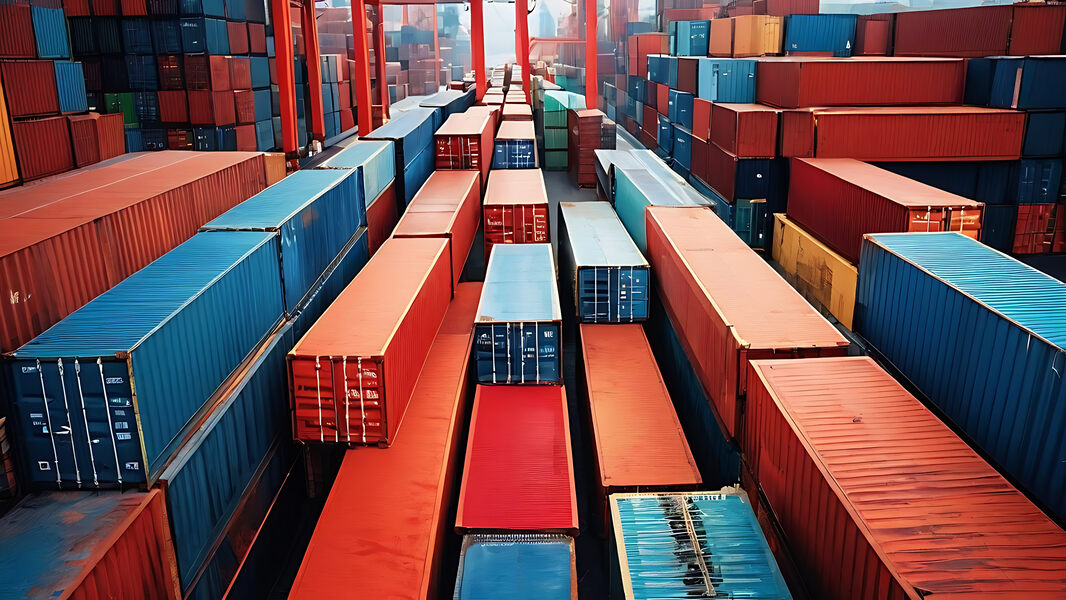
Strong institutions alleviate uncertainty
The beginning of the year is the time where think-tanks and economists predict the trends, or forces, that will shape economic and social outcomes over the next twelve months.
The common ground of different studies suggests an extension of what we experienced last year: skepticism about globalization, inward looking governments, restrictions of movement of people and goods, changing demographic characteristics, as well as geopolitical tensions that bring forth concerns of war, trade or otherwise. The implied political and economic uncertainty affects competitiveness.
How do countries navigate this environment to secure sustainable value creation and ensure the prosperity of their people? Taking the 2019 IMD World Competitiveness Yearbook as a starting point we note that economies varied in their reaction to the challenges they faced. While we don’t measure the range of specific responses, we are able to measure their perceived effectiveness through the IMD Executive Opinion Survey. Despite a somewhat sluggish performance in Western Europe and North America, they, together with Eastern Asia, mostly populate the top half of the competitiveness ranking. In this context, the data show that, strong institutions are an important component for addressing the given challenges.
Institutions play a fundamental role in smoothing the impact of political and economic uncertainty. They improve stability and, therefore, affect investments and innovation. Research shows that economies with high quality institutions tend to exhibit higher private investment rates and growth, inferring a higher quality of life for citizens.
Table 1 presents the top and under performers in several aspects of institutional quality. Economies that rank in the top three in these indicators, place in the top quarter of the overall competitiveness ranking. Conversely, countries that rank in the bottom three in these institutional aspects, rank in the bottom quarter of the overall ranking. For example, Singapore, Hong Kong and the UAE top the legal and regulatory indicator, and rank in the top five of the overall ranking. The most underperforming economies in this indicator – Greece, Croatia and Venezuela – rank 58th, 60th and 63rd in competitiveness. Government policy transparency is topped by Finland, Denmark and Norway, which rank 15th, 8th and 11th in the overall ranking. The underperformers in transparency of government policy – Slovak Republic, Mongolia and Venezuela – rank 53rd, 62nd and 63rd in the competitiveness ranking.
Selected indicators - Institutional Framework subfactor | Top performers | Under performers | |||||||
Adaptability of government policy to changes in the economy's high (survey) | Singapore | UAE | Luxembourg | Croatia | Greece | Venezuela | |||
Bribery and corruption do not exist (survey) | Finland | Denmark | Singapore | Colombia | Peru | Venezuela | |||
The legal and regulatory framework encourages the competitiveness of firms (survey) | Singapore | Hong Kong SAR | UAE | Greece | Croatia | Venezuela | |||
Transparency of government policy is satisfactory (survey) | Finland | Denmark | Norway | Mongolia | Slovak Republic | Venezuela | |||
Rule of law Index | Denmark | Norway | Finland | Mexico | Turkey | Venezuela | |||
Figure 1 highlights the role of institutions through government policy adaptability and stability. In the Executive Opinion Survey high level managers are asked to evaluate the adaptability of government policy to changes in the economy as well as the risk of political instability in their country. The left chart shows that high scoring economies in policy adaptability, such as Singapore and Norway, are the same that are placed high in the competitiveness ranking, while countries that score low in policy adaptability, such as Argentina and Brazil, also have a low standing in the overall ranking. The (negative) relationship is strong with a correlation coefficient equal to -0.75.
The chart on the right in Figure 1 exhibits the relationship between the risk of political instability (the higher the value the more stable the economy is) and the competitiveness ranking. Similarly, it shows that high levels of political stability are associated with higher competitiveness levels across all countries. This also has a strong (negative) relationship, with a correlation coefficient equal to-0.79.

In fact, there is a strong positive association between the institutional framework sub-factor and the overall competitiveness ranking, which is presented in Figure 2. The institutional framework sub-factor (a component of Government Efficiency) can explain 86% of the variation of the overall competitiveness in 2019 (R-squared=0.86, observations=63). Figure 2 shows this strong relationship which is characterized by a correlation coefficient equal to 0.93. This implies that the countries that rank high in the institutional framework sub-factor, are the countries that perform very well in the overall competitiveness ranking. For example, Switzerland, the Netherlands, Norway and Denmark rank in the top 10 in both dimensions. Argentina, Brazil and Mongolia are in the bottom 10 for both.

Uncertainty is likely to continue to challenge countries in their drive toward competitiveness in 2020. What past data has shown is that economies with strong institutions tend to be more successful in mitigating this impact by providing a predictable context for investment, innovation, and value creation.
Research Information & Knowledge Hub for additional information on IMD publications

China's self-reliance, innovation & resilience under 'Made in China 2025' continue to shape its global role amid geopolitical tensions & policy challenges.

Your gut instinct matters in a data-driven world. IMD’s Heather Cairns-Lee & Eugene Sadler-Smith explain how intuition enhances decision-making in uncertainty.
With stagnant import volumes since 2021, and import prices at levels below those suggested by fundamentals, foreign exporters face an uphill battle to convert access to the Chinese market into revenues. Notably, the volume stagnation predates the ...

Early in his career, Dolf van den Brink did everything he could to project an image of authority – including wearing spectacles he didn’t need. It wasn’t until he learned to be comfortable in his skin that he began to excel as a leader, he tells ...
It has become conventional wisdom to view Europe as an economic powerhouse past its prime, overshadowed by the steady advance of the US and meteoric rise of China. Critics cite Europe’s shrinking share of global GDP, excessive regulation, and slug...
Now in its eighth year, the 2024 IMD World Digital Competitiveness Ranking measures the capacity and readiness of 67 economies to adopt and explore digital technologies as a key driver for economic transformation in business, government, and wider...

A balanced assessment of the past eight years is that, in terms of trade policy, America has turned protectionist, implementing significant measures to restrict domestic market access to foreign (non-US) imports.

Key minds behind the Hinrich-IMD Sustainable Trade Index – Deborah Elms, Chuin Wei Yap, Christos Cabolis, and Simon Evenett – explain how decision-makers can benefit from looking at industrial policy in granular detail, given its resurgence and th...
Inflows of foreign direct investment into China shows worrying trends despite its massive economy. While total FDI appears substantial at $163B in 2023, most growth comes from existing foreign subsidiaries rather than new entrants. Foreign manufac...

Climate change, geopolitical frictions, and supply chain disruptions call for more sustainable trade practices that can withstand the pressures of volatility. But for trade to be sustainable, it must also be resilient. IMD World Competitiveness Ce...
Research Information & Knowledge Hub for additional information on IMD publications
Research Information & Knowledge Hub for additional information on IMD publications
Research Information & Knowledge Hub for additional information on IMD publications
Research Information & Knowledge Hub for additional information on IMD publications
Research Information & Knowledge Hub for additional information on IMD publications
IMD World Competitiveness Center Report, 14 November 2024, 8th edition
Research Information & Knowledge Hub for additional information on IMD publications
Research Information & Knowledge Hub for additional information on IMD publications
Research Information & Knowledge Hub for additional information on IMD publications
Research Information & Knowledge Hub for additional information on IMD publications
Research Information & Knowledge Hub for additional information on IMD publications

